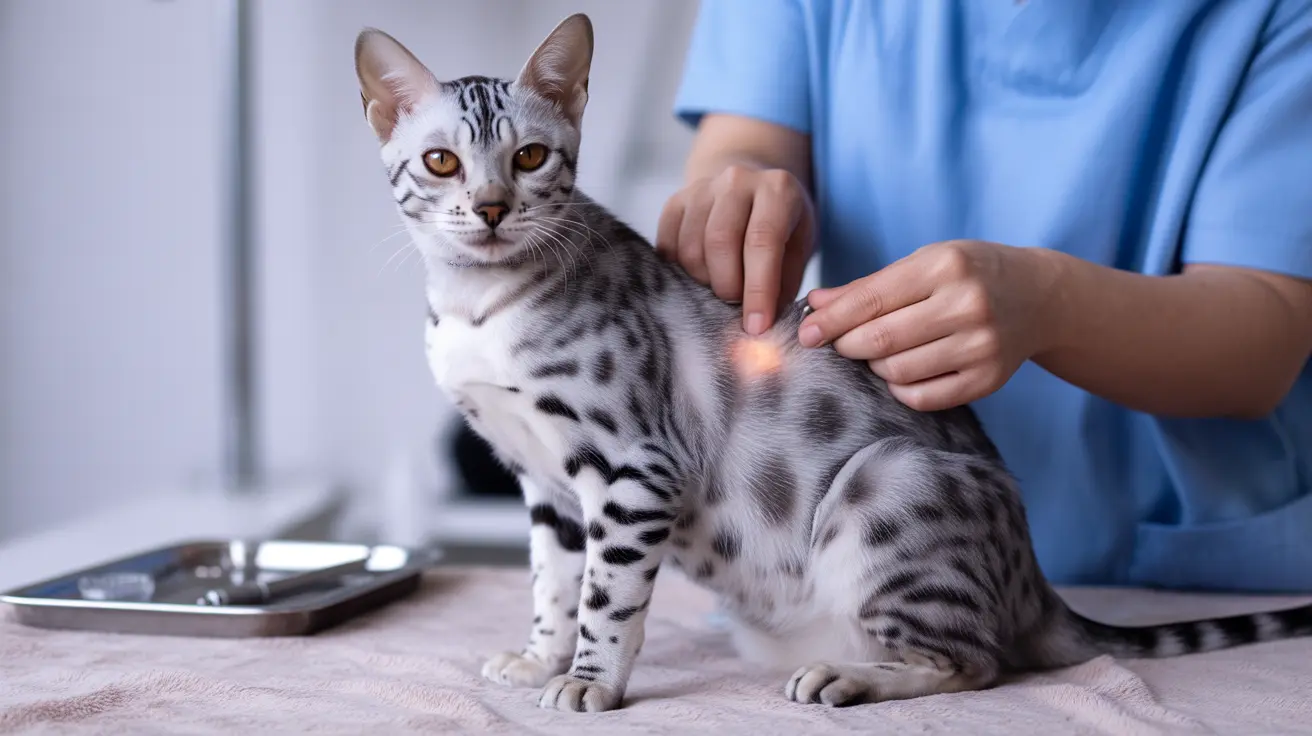Introduction
When it comes to protecting your feline friend's health, understanding distemper vaccine side effects in cats is crucial for every pet owner. The feline distemper vaccine, also known as the FVRCP vaccine, is a core vaccination that safeguards cats against potentially fatal diseases, including panleukopenia, calicivirus, and rhinotracheitis.
While the benefits of vaccination far outweigh the risks, being informed about potential side effects helps you better monitor your cat's health post-vaccination and know when to seek veterinary care. Let's explore what you can expect after your cat receives their distemper vaccine and how to identify both common and rare reactions.
Common Side Effects of the Distemper Vaccine
Mild Reactions at the Injection Site
Most cats experience minimal discomfort after receiving their distemper vaccine. Common injection site reactions include:
- Mild swelling or tenderness
- A small, firm bump that typically resolves within a few weeks
- Slight warmth at the vaccination site
- Temporary soreness when the area is touched
General Systemic Reactions
Some cats may show mild systemic effects as their immune system responds to the vaccine:
- Slight lethargy lasting 24-48 hours
- Reduced appetite
- Mild fever
- Temporary decrease in activity level
Recognizing Serious Vaccine Reactions
While rare, some cats may experience more severe reactions that require immediate veterinary attention. Watch for:
- Severe lethargy or collapse
- Persistent vomiting or diarrhea
- Difficulty breathing
- Facial swelling
- Hives or severe itching
- Uncontrolled trembling
Managing Post-Vaccine Care
Monitoring Your Cat
After vaccination, observe your cat closely for the first 24-48 hours. Keep them comfortable and maintain their regular routine, but be prepared to contact your veterinarian if concerning symptoms develop.
When to Contact Your Vet
Seek immediate veterinary care if your cat shows:
- Signs of anaphylaxis (usually within 30 minutes of vaccination)
- Symptoms that persist beyond 48 hours
- Any severe or concerning reactions
- Growth or persistent swelling at the injection site
Long-Term Considerations
While extremely rare, some cats may develop injection-site sarcomas months or years after vaccination. Regular monitoring of vaccination sites and discussing any concerns with your veterinarian helps ensure early detection of potential issues.
Frequently Asked Questions
What are the common side effects of the feline distemper vaccine in cats?
Common side effects include mild soreness at the injection site, temporary lethargy, slightly decreased appetite, and mild fever. These typically resolve within 24-48 hours.
How can I recognize serious allergic reactions in my cat after the distemper vaccine?
Serious allergic reactions usually occur within 30 minutes and may include facial swelling, difficulty breathing, severe itching, vomiting, diarrhea, or collapse. These require immediate emergency veterinary care.
Is swelling at the injection site after the distemper vaccine normal and how long does it last?
Mild swelling at the injection site is normal and typically resolves within a few days to weeks. However, if the swelling persists, grows larger, or becomes painful, consult your veterinarian.
Can the feline distemper vaccine cause injection-site sarcomas or other long-term problems?
While extremely rare (1 in 1,000 to 1 in 10,000 cases), injection-site sarcomas can develop. Modern vaccination techniques and protocols help minimize this risk.
When should I call a veterinarian if my cat shows symptoms after receiving the distemper vaccine?
Contact your veterinarian if your cat shows severe lethargy, persistent vomiting or diarrhea, difficulty breathing, facial swelling, or if mild symptoms last longer than 48 hours.
Conclusion
While distemper vaccine side effects in cats are generally mild and self-limiting, being informed about potential reactions helps ensure your cat's safety and well-being. Remember that the protection provided by vaccination far outweighs the minimal risks of side effects. Always discuss any concerns with your veterinarian and maintain regular vaccination schedules as recommended for your cat's specific needs.






